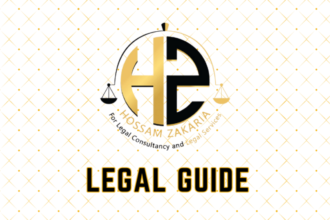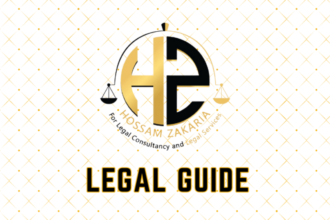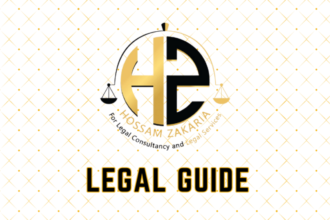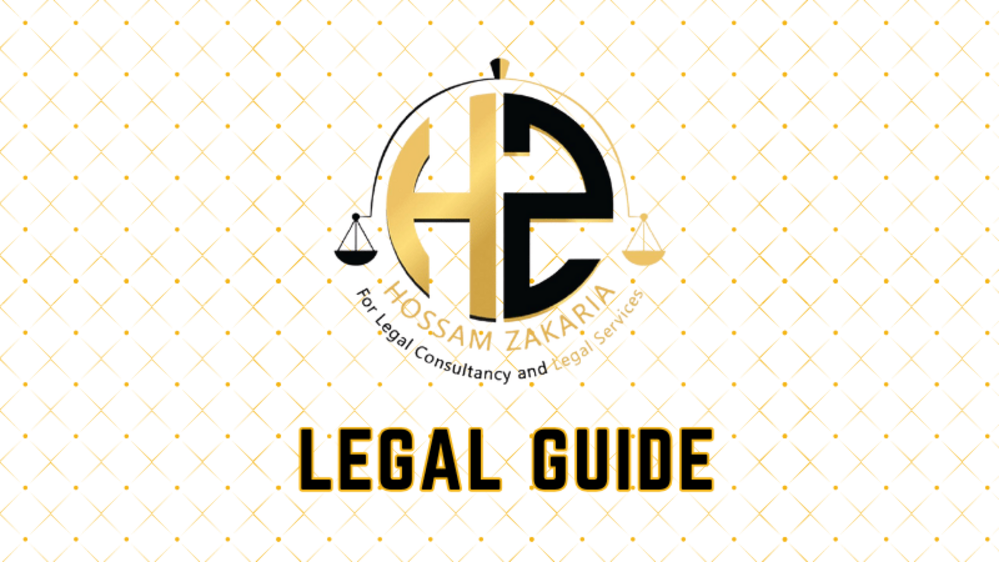Introduction: The Pivotal Role of International Arbitration in the UAE’s Legal Landscape
As global commerce becomes increasingly complex, cross-border disputes have grown in both number and sophistication. The United Arab Emirates (UAE), firmly establishing itself as a commercial and financial gateway between East and West, has continued to modernize its dispute resolution framework with a particular focus on international arbitration. The relevance of international arbitration under UAE law is more significant than ever, especially following the 2025 legal updates, which introduce several critical changes impacting both local and international businesses operating within the region.
These regulatory advancements are strategically designed to reinforce the country’s reputation for being a premier hub for commerce and investment, ensuring that disputes—particularly cross-border ones—are resolved with predictability, efficiency, and fairness. In this article, we provide an expert legal analysis of the current landscape, break down the 2025 updates to the UAE’s international arbitration regime, and offer actionable guidance to corporations, in-house counsel, and executives navigating the evolving regulatory environment.
For legal practitioners, multinational organizations, and business leaders, understanding these developments is not only a matter of compliance but a strategic imperative. The following analysis, referencing legislation such as Federal Law No. 6 of 2018 (the Arbitration Law), recent Cabinet Resolutions, and leading institutional rules, will equip you with the insights needed to master dispute resolution in the UAE’s dynamic legal setting.
Table of Contents
- Overview: Arbitration Under UAE Law
- 2025 Updates to the UAE Arbitration Framework
- Key Arbitration Centres and Institutional Developments
- Practical Implications for Businesses
- Case Studies and Hypotheticals
- Compliance Strategies and Minimising Risk
- Conclusion and Forward-Looking Perspective
Overview: Arbitration Under UAE Law
Legal Foundation: The UAE Arbitration Law
The principal legislative regime for arbitration in the UAE is set out in Federal Law No. 6 of 2018 (the Arbitration Law), which aligns closely with the UNCITRAL Model Law. This law governs procedures for both domestic and international arbitrations, enhancing the enforceability of arbitral awards and clarifying the jurisdictional boundaries between the UAE courts and arbitral tribunals. Additionally, the UAE is a signatory to the New York Convention (since 2006), streamlining the recognition and enforcement of foreign arbitral awards within its jurisdiction.
Scope and Applicability
Arbitration agreements are now an established method for resolving civil and commercial disputes with an international dimension. Parties have wide latitude to select the seat, procedural rules, and language of arbitration. The fortification of these principles in law and practice has propelled the UAE to the forefront of global arbitration hubs.
Judicial Support and Supervision
The 2018 Arbitration Law restricts judicial intervention, affirming that UAE courts may typically only play a supportive role, for example, by appointing arbitrators or deciding on interim measures upon party request. This approach minimises delay and increases business confidence. However, courts retain supervisory jurisdiction to ensure awards are not contrary to UAE public policy.
Summary of Recent Legislative Evolution (Table)
| Aspect | Pre-2018 Position | Post-2018 Arbitration Law |
|---|---|---|
| Legal Basis | Civil Procedures Law provisions; less clarity | Dedicated Arbitration Law (Federal Law No. 6 of 2018), UNCITRAL Model Law aligned |
| Interim Measures | Limited; uncertain judicial support | Court support expressly permitted |
| Enforcement | Frequent delays; narrow grounds | Streamlined recognition and enforcement regime |
2025 Updates to the UAE Arbitration Framework
Overview of Legal Updates
2025 has ushered in a set of pivotal amendments and clarifications, influenced by Cabinet Resolutions and interpretative circulars from the Ministry of Justice. The latest regulatory changes, including updates to the rules of leading UAE arbitration centres, aim to further modernise procedures and enhance compliance with international best practices.
Key Changes in the 2025 Updates
- Expanded Arbitrability: New interpretations clarify which commercial and corporate disputes are fully arbitrable, removing uncertainty, especially in shareholder and joint venture contexts.
- Enhanced Party Autonomy: The amendments now explicitly validate electronic and digitised arbitration agreements, facilitating cross-border contracts amidst remote business operations.
- Procedural Efficiency and Interim Relief: The 2025 updates empower arbitral tribunals to grant interim measures that are enforceable directly through UAE courts without requiring a separate lawsuit.
- Diversity in Arbitrator Appointment: Guidelines now encourage greater diversity among arbitrators, aligning with global ESG (Environmental, Social, Governance) trends and international institutional standards.
- Transparency in Proceedings: Procedural rules now require arbitrators to disclose potential conflicts and necessitate publication of redacted awards, increasing transparency and public trust.
- Powers of Supervisory Courts: The threshold for challenging arbitral awards has been clarified, making it more difficult to annul awards except for manifest violations of public policy or clear procedural errors.
Comparison Table: Major 2025 Amendments
| Key Amendment | Previous Framework | 2025 Update |
|---|---|---|
| Electronic Agreements | Recognition uncertain | Explicit legal basis for enforceability |
| Interim Measures | Court action typically required | Arbitral awards of interim measures directly enforceable |
| Diversity of Arbitrators | No formal guidance | Guidelines recommend diverse appointments |
| Transparency | Limited award publication | Mandated redacted award publication |
Key Arbitration Centres and Institutional Developments
Leading UAE Arbitration Institutions
The UAE hosts several internationally recognised arbitration centres, most notably:
- Dubai International Arbitration Centre (DIAC)
- Abu Dhabi Global Market Arbitration Centre (ADGMAC)
- Sharjah International Commercial Arbitration Centre (Tahkeem)
- Dubai International Financial Centre-LCIA Arbitration Centre (until 2021, merged with DIAC)
These institutions have recently updated their rules to align with the 2025 amendments. For example, DIAC’s 2025 Rules incorporate digitisation, expedited procedures for disputes below AED 2 million, and online hearings as standard options.
Institutional Rule Changes with Practical Examples
- Electronic Filings: Parties can now submit notice of arbitration, evidence, and pleadings digitally. For a UK supplier in London contracting with a UAE distributor, all case documents can be securely exchanged through the institution’s e-portal.
- Virtual Hearings: Whether managing witnesses in multiple jurisdictions or addressing urgent interim relief, parties and arbitrators can now hold remote hearings by default.
- Summary Disposal: Mechanisms are introduced for the early dismissal of manifestly unmeritorious claims, reducing overall costs and timeframes.
Practical Implications for Businesses
Key Compliance Considerations
The 2025 updates present both opportunities and compliance challenges. Businesses involved in cross-border transactions or operations in the UAE should:
- Review contractual arbitration clauses to ensure enforceability of electronic agreements and remote procedures;
- Advise in-house counsel and contract managers on the precise scope of arbitrable disputes, especially for shareholder and partnership contracts;
- Understand how and when to apply for interim measures and ensure documentation includes clear jurisdictional and procedural language;
- Develop internal protocols for managing digital and virtual evidentiary processes;
- Engage with arbitration institutions early to leverage expedited and summary processes for lower-value disputes, minimising business disruption.
Penalties and Risks of Non-Compliance
Failing to properly incorporate updated arbitration procedures or incorrectly drafting arbitration agreements can result in huge uncertainty and cost, including:
- Ineffective dispute resolution clauses, leading to court litigation or unenforceable awards;
- Loss of strategic business advantages (e.g., choice of seat or language);
- Potential adverse costs and lengthy proceedings due to challenges on jurisdictional or procedural grounds;
- Heightened exposure to annulment applications on the basis of breach of new procedural rules.
Suggested Visual: Compliance Checklist
We recommend including a compliance checklist visual to help organisations ensure that arbitration clauses and internal processes meet the 2025 legal requirements.
- Check if your arbitration agreements are in writing and now electronically verifiable.
- Confirm that all parties are aware of rules on interim measures and summary disposal.
- Brief internal stakeholders on new award publication policies for reputational risk management.
Case Studies and Hypotheticals
Case Study 1: Multinational Joint Venture Dispute
An international construction joint venture between a German contractor and a UAE developer uses an electronically signed DIAC arbitration clause. In 2025, a contractual breach leads the contractor to apply for an urgent interim order to freeze assets. The tribunal, under the latest rules, grants an interim measure which is lodged with UAE courts and enforced within days—demonstrating efficiency and commercial certainty under the updated law.
Case Study 2: Technology Supplier Cross-Border Payment Dispute
A Singaporean technology supplier contracts with a Dubai-based fintech company using an online execution platform. Following a payment default, the supplier seeks expedited arbitration under ADGM’s new summary disposal rules. The process, conducted fully online, results in a binding award in 10 weeks—showcasing the practical value of recent reforms for fast-moving industries.
Case Study 3: Family-Owned SME Partnership Claim
A UAE family-owned SME faces an internal partnership dispute regarding profit distribution. The parties, having incorporated an arbitration clause in their Articles of Association, benefit from the clarified arbitrability provisions and new guidance on arbitrator diversity, leading to a balanced, effective resolution that maintains business continuity.
Compliance Strategies and Minimising Risk
Advisory for In-House Counsel and Business Owners
- Clause Review and Update: Proactively update all existing arbitration clauses to reference the new legal framework and institutional rules. Ensure clauses contemplate electronic communication, digital evidence, and virtual proceedings.
- Choose Reputable Institutions: Select arbitration centres with robust online systems and updated rules reflecting UAE legal requirements.
- Training and Internal Education: Provide internal workshops for legal and commercial teams about the new compliance requirements and procedural changes.
- Engage External Counsel Early: Seek legal advice promptly when structuring cross-border agreements to tailor arbitration clauses to the nature of the underlying transactions.
- Emphasise Confidentiality: With new publication rules, ensure contracts contain confidentiality provisions suited to your industry’s needs.
Sample Compliance Table: Best Practices vs. Common Pitfalls
| Best Practices | Common Pitfalls |
|---|---|
| Explicitly reference arbitration law/version and institution | Vaguely worded, outdated clauses |
| Include provisions for e-signatures and digital evidence | Restricting to wet-ink signatures |
| Address interim relief and summary dismissal rules | Omitting key procedural elements |
| Regular legal training/updates | Relying on outdated templates |
Minimising Litigation Risk
Leverage early case assessment, mediation before arbitration, and appointment of suitably skilled arbitrators to enhance outcomes and avoid protracted litigation risks. Regularly monitor developments from the UAE Ministry of Justice and institutional guidance to remain responsive to evolving best practices.
Conclusion and Forward-Looking Perspective
The 2025 updates to the UAE’s international arbitration framework reflect a jurisdiction determined to entrench itself as a beacon of legal certainty, investor protection, and commercial agility in an evolving global marketplace. The advances in digitalisation, party autonomy, and efficient court enforcement mechanisms have markedly improved the dispute resolution process for cross-border transactions.
For businesses, the new landscape offers both unprecedented opportunities and heightened responsibilities. Staying compliant with these updates is essential—not solely to avoid penalties but to enhance business continuity and reputation. Regularly reviewing contract templates, engaging proactively with reputable arbitration centres, and fostering a compliance-focused culture are now indispensable components of effective risk management in the UAE.
As the UAE continues to modernise its commercial laws, clients and legal practitioners are strongly advised to keep abreast of official Ministry of Justice guidance, Federal Decree updates, and institutional rule changes. By doing so, they can confidently navigate cross-border dispute resolution and leverage the UAE’s unique advantages well into the future.
Suggested Visual: Arbitration Process Flow Diagram
To further aid comprehension, consider incorporating a visual overview of the arbitration lifecycle from agreement drafting to award enforcement—including steps for interim relief, electronic filings, virtual hearings, and UAE court enforcement.
References
- Federal Law No. 6 of 2018 on Arbitration
- UAE Ministry of Justice: www.moj.gov.ae
- Federal Legal Gazette
- Dubai International Arbitration Centre (DIAC)
- UAE Government Portal: u.ae



